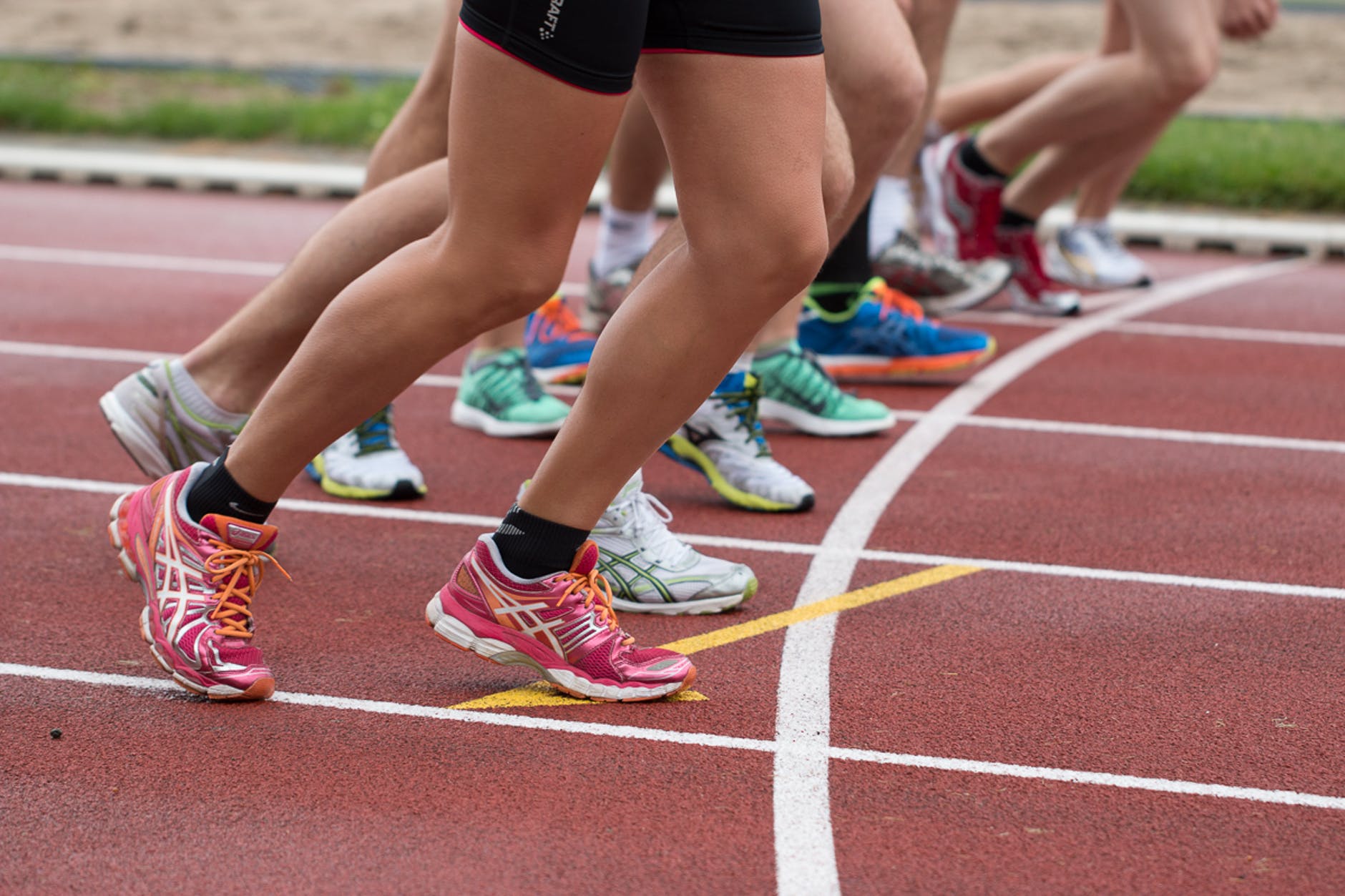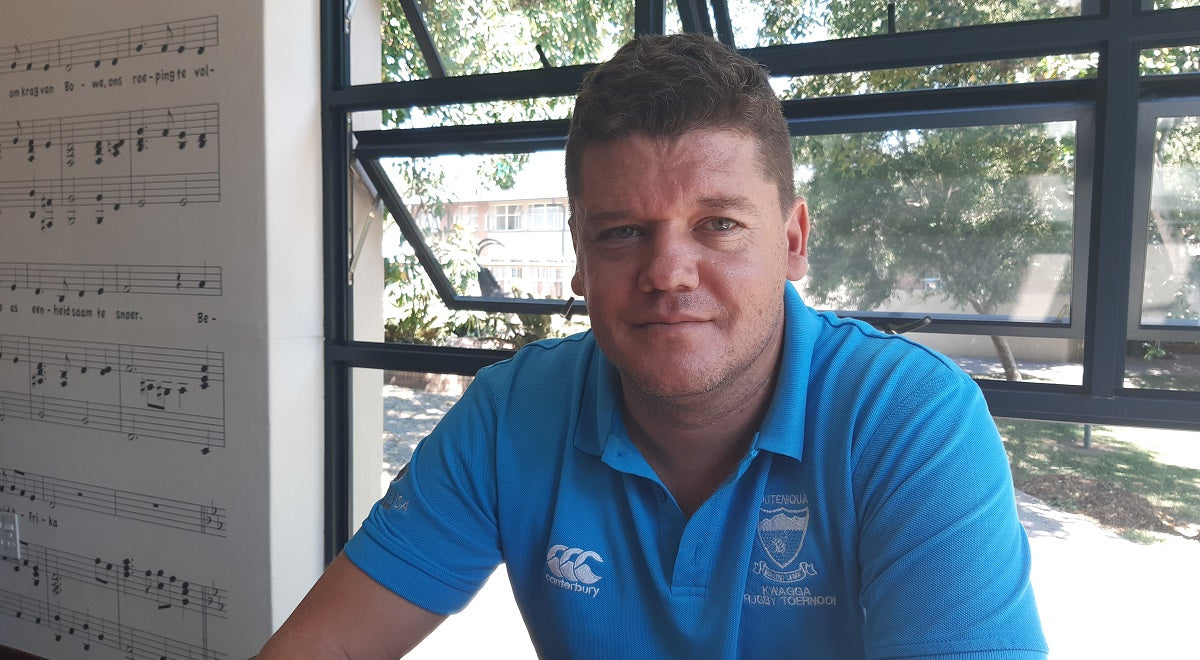Mr Johan Pretorius, has an athletics academy for gr.1-7’s and is a rugby- and cricket coach to Hoërskool Nelspruit (NHS). Not only was he a talented athlete in his formative years, but also completed six Half Iron Man competitions and two complete Iron Man competitions. The famous Iron Man competition consists of a 3.8km swim, 180km cycling followed by a 42km run. He shares his top tips on nurturing one’s passion for sports and exercise.
How do you go about getting children involved in sports?
“Have them try out absolutely everything, until they find something they like. You can identify what children will like doing, by asking them what sort of games they play. If they like playing tag or touchers, you know they will like running. If they like playing with balls, you may want to consider a team sport.”
“Some children are not fast, or have health problems that exclude them from open-field, heavy cardio. In these cases, you can speak to a parent and recommend something like karate or ballet. They still get the exercise but they are not as exposed to the elements.”

“Once the kids reach NHS, we encourage them to participate in the various activities on offer. You identify children who don’t like team contact sports but they are able to throw a ball across a field. Then, you let them try out for discus and javelin teams.”
How do you keep them interested?
“Once they have chosen their sports, it is important not to force them to go to every practice, especially if they are very young. A six- or seven-year-old may easily find a sport they love, becoming a chore. You don’t want to kill that flame. Keep it light and fun.”
“I strongly recommend against specialising in one single direction, at least until they are 16. If you force a child in one direction simply because they are good at it, they can get bored and put off with that activity. They have lost the opportunity to gain skills in other things they may have liked.”

“This will also help to keep them in an exercise routine throughout the year as the sports are spread out across the school year.”
“We also switch up our practice plans, take them to new places, adjust the level of activity according to the weather, and do unexpected things to keep it interesting. Sometimes, we let the rugby team play a netball match against the girls.”
“It is important for me to stay fit and compete in challenges, so that I lead by example.”
Why is sport important?
“There are some children who make a career out of it, like myself, and famous athletes like Duane Vermeulen. However, that is not our primary goal. For every one child who turns it into a career, nine won’t.”

“Our primary goal here is to promote a lifestyle where children eat healthy, deal with stress, frustration and built-up energy in a safe, healthy way, and most importantly, for them to have fun.”
“At NHS, we try to give learners a well-rounded education that can help them in their adult lives. It teaches them time-management, discipline and routine. This is very important after school, because young adults often struggle juggling university or their new jobs and everything else. The tools they learn in their formative years will help them cope.”
Sports can be very competitive, but everyone cannot be a winner
“We are one of the top achieving schools, but as I’ve said, not everyone is planning to make a career out of it. We have so many kids that love participating, even if they are terrible at it – and that’s fine! That is why we have C and D teams, and we actively try to arrange matches for them. Sometimes, they have no idea what the scoreboard says. They can be losing 40 to naught, and still have fun because they just want to play.”

“If you are a runner and you are not fast but you have endurance and love running, I let you run. I won’t push you as hard as I do my top athletes, but I will nurture the passion.”
“It is also very important to take note that children are growing. A boy or a girl may be very small when they start here, and not be good at much. But they can grow, and shoot up to the heavens overnight, or over the course of three years. A child in grade 8 is very different to one in grade 11. We need to take every child’s potential to grow into consideration. A teenager can start in the D team by grade 8 and end up in the A or B team by matric. Don’t throw anyone away because of their perceived lack of potential; allow them to keep practicing their skills.”
What if you are competitive and the pressure is high?
“At NHS, we have sport psychologists, biokineticists and social workers who continuously counsel our athletes and coaches. We also have a doctor that comes in on Mondays to assist with sport injuries.”
What is your biggest challenge with promoting healthy diets among learners?
“Teens are very focused on their appearance. Girls tend to fixate on their weight, and boys want to look as strong and muscular as possible. We would never ever give them a piece of paper and tell them; this is what they have to eat. Every child has a different metabolism and level of activity. We only ask that they try to eat as healthy as possible. Banned substances are strictly forbidden.
“The only thing we will recommend or give to them is healthy, safe protein supplements such as 32Gi Recover, and electrolyte recovery drinks such as Rehidrat.”
We can deliver your medication, supplements, cosmetics, fragrances and other Mopani online shopping, nationwide. Contact us for info: mopani.co.za | crossing@mopani.co.za | Tel: 0137555500 | WhatsApp: 0661921703


